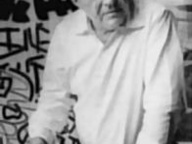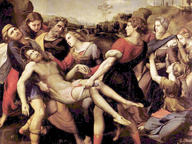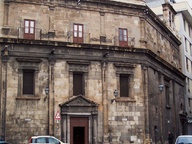Museums at The ‘Post-Digital’ Turn (I musei alla svolta ‘post-digital’)
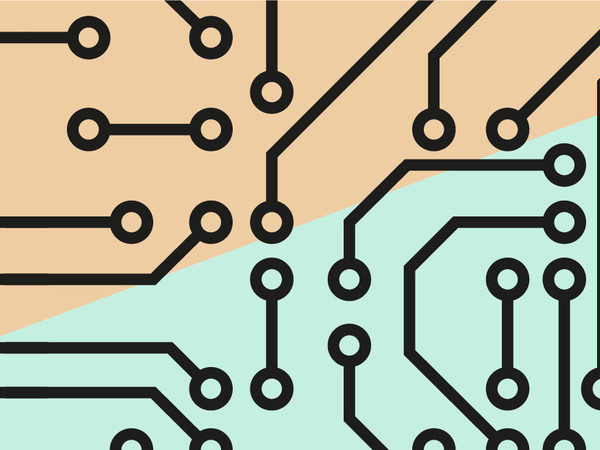
Museums at The ‘Post-Digital’ Turn (I musei alla svolta ‘post-digital’)
From 03 Novembre 2017 to 04 Novembre 2017
Turin
Place: OGR – Officine Grandi Riparazioni
Address: corso Castelfidardo 22
Responsibles: Lorenzo Giusti, Nicola Ricciardi
Organizers:
- AMACI – Associazione dei Musei d’Arte Contemporanea Italiani
- Con il patrocinio della Rappresentanza in Italia della Commissione europea
- Ministero dei beni e delle attività culturali e del turismo
- ICOM Italia
- Regione Piemonte
- Comune di Torino
Ticket price: Biglietto per le due giornate: € 150
AMACI – the Association of Italian Contemporary Art Museums and OGR – Officine Grandi Riparazioni in Turin announce Museums at the ‘Post-Digital’ Turn, the first major symposium conceived by AMACI in the framework of Museum Twenty-One, a brand new research platform dedicated to the transformations of the contemporary art museum.
Museums at the ‘Post-Digital’ Turn will take place at the OGR in Turin over two days, 3-4 November 2017, and will encompass seven panels including presentations and lectures by Claire Bishop (Professor, CUNY Graduate Center, NY), Cécile B. Evans (Artist), Lauren Cornell (Director of CCS Bard’s Graduate Program and Chief Curator at Hessel Museum of Art, NY), Liam Gillick (Artist), Boris Groys (Philosopher and Art Critic), Christiane Paul (Associate Professor, School of Media Studies, The New School; Adjunct Curator of Digital Art, Whitney Museum, NY), and Domenico Quaranta (Art Critic, Professor and Curator). The investigation sessions will be led by the chairs Gabriella Belli (Director, Fondazione Musei Civici di Venezia, Venice), Carolyn Christov-Bakargiev(Director, Castello di Rivoli Museo d’Arte Contemporanea and GAM – Galleria Civica d’Arte Moderna e Contemporanea, Turin), Lorenzo Giusti (Director, MAN Museum, Nuoro), Letizia Ragaglia (Director of MUSEION, Bolzano), Nicola Ricciardi (Artistic Director, OGR, Turin), and Andrea Viliani (Director, MADRE, Naples).
The symposium will also feature a scientific section, coordinated by Gail Cochrane (Doctor, Politecnico di Torino, Department of Architecture and Design) and Pier Paolo Peruccio (Professor, Politecnico di Torino, Department of Architecture and Design), with panels and contributions by experts from prestigious international universities and institutes, such as Sara Abram (Coordinator of the Contemporary Art Conservation sector, Centro Conservazione e Restauro ‘La Venaria Reale’, School of Advanced Training, Turin), Lily Diaz-Kommonen (Professor, Aalto University, Helsinki), Claudio Germak (Professor, Politecnico di Torino), Cecilia Hurley-Griener (Researcher and Lecturer, École du Louvre, Paris), Michael Grugl (Critic and Architect, Rhode Island School of Design, Providence), Sanneke Stigter (Assistant Professor, University of Amsterdam), Hélène Vassal (Head of the collections, Centre Pompidou – Professor, École du Louvre, Paris), Malene Vest Hansen (Associate Professor, University of Copenhagen), and Victoria Walsh (Professor and Head of Programme, Curating Contemporary Art, Royal College of Art, London).
Given the mission of AMACI – founded in 2003 with the aim of promoting the languages of contemporary art, supporting the development of institutional policies on contemporaneity and setting out guidelines for a common cultural strategy for contemporary art museums – and the new and increasing need to analyse the latest museum practices, the focus of Museums at the ‘Post-Digital’ Turn asks not “what is next?” but rather the more urgent and durable question of “what futures are there?”
The technological revolution has placed cultural institutions before a generational challenge, calling on them to rewrite their own role and revise their own operational practices. The symposium aims to deal with a crucial aspect of our time, one which has led to a radical change in the ways of producing and viewing artworks, placing the contemporary art museum before the need for an in-depth and transversal reflection. Over the last decade, the interconnections between networks and digital mediation have become tangible components of everyday life. These dimensions have become naturalised in our way of thinking about existence in a vision of the world that envelops the totality of contemporary living, from our relationship with objects to the ramified structuring of social dynamics. Art and the art system have taken this change on board – the so-called ‘post-digital turn’ – by setting up a process of substantial transformation.
The real-time sharing of images and information via digital platforms has led to an ever more evidentreciprocity between artistic productions, undermining the concept of uniqueness in favour of a principle of‘interconnectedness’. Today, ‘online’ viewing almost always precedes that in real life (indeed, sometimes it substitutes it entirely), and an ever greater number of works appear to be created specifically to be viewed through the screen. The consequences of this phenomenon of multiplication and diffusion question exhibition conventions, the dynamics of mediation and the rhythms of production and legitimisation of the traditional platforms in favour ofmore immediate processes. Approval, which may be obtained much more rapidly than in the past, appears to be ever less the expression of elaborated judgements and ever more a collective issue of visibility, of the survival of the image within the web. Indeed the online sphere, in relation to the process of progressive integration between physical and digital space, emerges ever more as a material place; not a virtual zone, an alternative to reality, but also a concrete substance which permeates our everyday lives. It therefore comes as no surprise that the incursion of digital networks in the various production and viewing phases of the artwork is not corresponding to a new phase in the dematerialisation process which dates back to the neo-avant-gardes, but rather to a reinterpretation of realist and materialist thought – by artists, critics and curators – as an alternative to the postmodernist and post-structuralist approaches.
In the light of this scenario, the speakers and experts invited from across the world will convene to consider these central questions:
What does the future hold in store for the museum? What role may the museum as an institution play in the physical space of the web? What changes are taking place in curatorial practices, display strategies, collecting and conservation policies, mediation techniques and teaching systems? How has the relationship with the public changed, and how much will it continue to change over the years to come? What results – in terms of approval, incidence, capacity for persuasion and criticism of museum projects – is it fair to expect from a system of viewing and ratification which is ever more ‘externalised’? What role may be played by the history of art over the years to come, and in what way will it interface with the ever more fluid activities of museums?
The convention will be hosted inside the New OGR – Officine Grandi Riparazioni of Turin, a cultural production and interdisciplinary experimentation centre stretching of over 35,000 square metres, to be opened on 30th September 2017 thanks to the fundamental support from the Fondazione CRT. The thorough exploration of the various fields of operation of the contemporary art museum is a key theme both of the Symposium and of the venue that will host the event. Not by chance, OGR is the result of the ambition to bring together two souls: that of artistic research and that of permanent innovation, uniting ideas and values of creativity with the tools and languages of new technologies, all against the backdrop of a post-industrial architectural scenario.
The convention will be held in English, with the possibility of simultaneous translation into Italian.
The acts will be published by Mousse Publishing in two languages as part of the first issue of the publishing series entitled Museo Ventuno – Museum Twenty One.
The convention will be held with the support of the Representation of the European Commission in Italy, of the Ministry for Cultural Heritage, Activities and Tourism, of ICOM Italia, Piedmont Region and Turin City Council.
SCARICA IL COMUNICATO IN PDF
COMMENTI

-
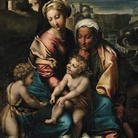 Dal 31 gennaio 2024 al 04 maggio 2025
Fermo | Palazzo dei Priori
Dal 31 gennaio 2024 al 04 maggio 2025
Fermo | Palazzo dei Priori
-
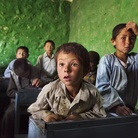 Dal 20 dicembre 2024 al 04 maggio 2025
Fermo | Palazzo dei Priori
Dal 20 dicembre 2024 al 04 maggio 2025
Fermo | Palazzo dei Priori
-
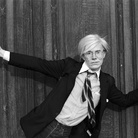 Dal 20 dicembre 2024 al 04 maggio 2024
Gorizia | Palazzo Attems Petzenstein
Dal 20 dicembre 2024 al 04 maggio 2024
Gorizia | Palazzo Attems Petzenstein
-
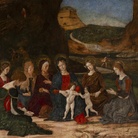 Dal 18 dicembre 2024 al 18 dicembre 2024
Venezia | Museo Correr
Dal 18 dicembre 2024 al 18 dicembre 2024
Venezia | Museo Correr
-
 Dal 14 dicembre 2024 al 02 marzo 2025
Palermo | Palazzo Abatellis
Dal 14 dicembre 2024 al 02 marzo 2025
Palermo | Palazzo Abatellis
-
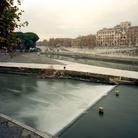 Dal 12 dicembre 2024 al 23 febbraio 2025
Roma | Palazzo Altemps
Dal 12 dicembre 2024 al 23 febbraio 2025
Roma | Palazzo Altemps
